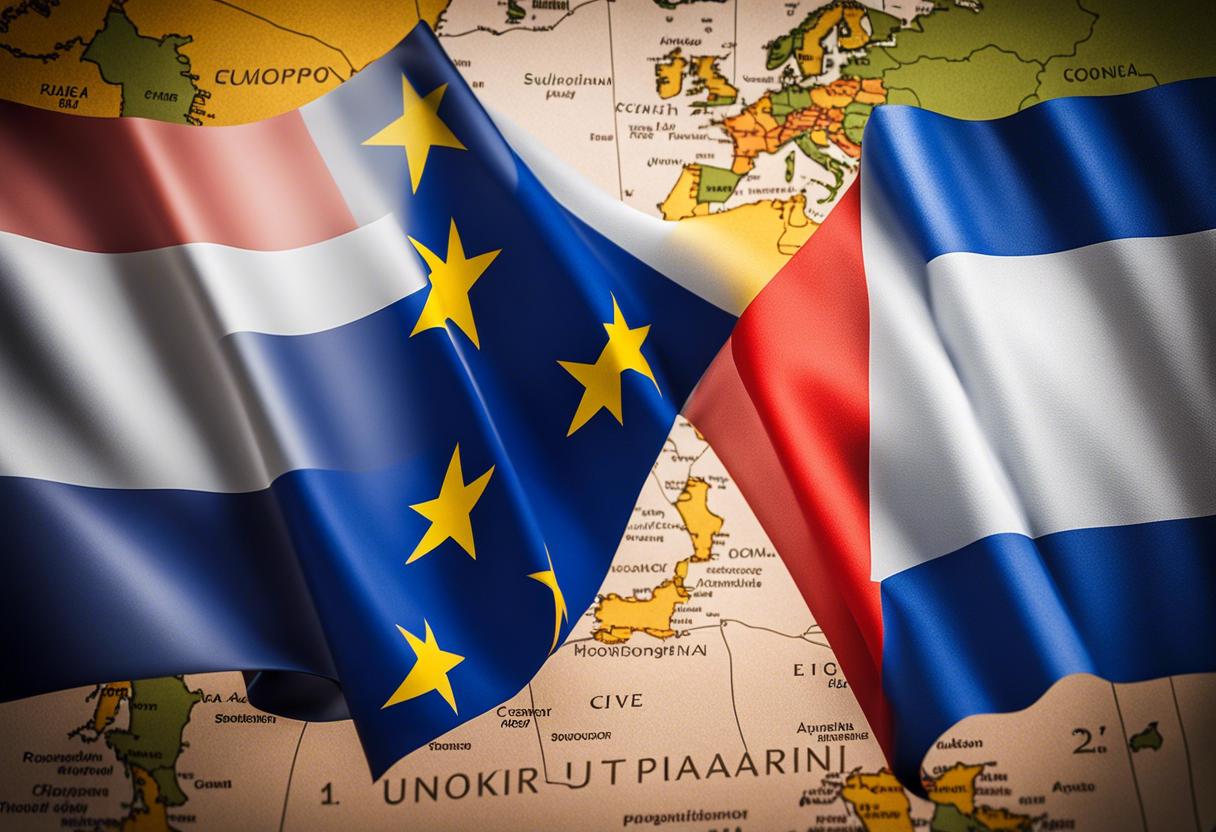The European Union has struck an agreement to utilise gains from Russia’s seized assets to finance support and armaments for Ukraine in the forthcoming months. High-ranking diplomats from the EU, who met on Wednesday, reached an understanding to employ the expected €4.4 billion surplus profits to support Ukraine, eventually settling a disagreement over taxation and administrative expenses in Belgium – the nation where the majority of seized assets are retained.
A considerable portion, €191 billion of the €260 billion of assets from the Russian Central Bank, which have been made inactive by Western authorities in retaliation to Russia’s incursion into Ukraine in 2022, are maintained by Euroclear, a Brussels-based clearinghouse. The clearing agency, earlier this year, disclosed an interest of €4.4 billion on Russian funds, predicting that this would result in taxation benefits of €1.085 billion for the Belgian government.
The final figure to be set aside for Ukraine is still to be established but is anticipated to be ready by July. Despite initial hesitation over the legal implications of confiscating the entire Russian assets, the EU determined that the profits could be presented to Ukraine after deducing Moscow had no legitimate claim over these assets. However, attaining an agreement has been challenged by disagreement over expenditure, Euroclear’s handling charges, and Belgium’s 25% corporation tax.
Belgium has now stated it is “open to considering” a voluntary scheme to shift the accrued taxes to Ukraine from 2025, as per diplomatic sources, the shift which was initially reported by Politico. While Belgium already provides aid to procure weapons for Ukraine, other EU nations contended that the Russian surplus should be on top of – rather than replacing – Belgium’s regular aid to Ukraine. The financial gains have been seen by one EU diplomat as “a windfall tax for Belgium” and claimed: “It’s mildly unfair as no other country has Russian capital to finance their aid for Ukraine.”
In the meeting on Wednesday, the diplomats managed to trim down Euroclear’s handling fee from the initially proposed 3 per cent to 0.3 per cent. It was determined by EU member countries that 90 per cent of the surplus profits would be allocated for Ukraine’s weaponry and the remaining 10 per cent for non-destructive aid—a balance meant to pacify nations like Ireland, Austria and Hungary, which are unable or unwilling to finance weapons.
EU delegates assented fundamentally to procedures that address exceptional income originating from Russia’s frozen assets, as stated by Belgium’s EU presidency on a given date. Such funds will contribute to Ukraine’s revitalisation and military protection in light of the hostility from Russia.
EU Commission President, Ursula von der Leyen, praised the resolution on the same date, stating that no powerful sign nor better application for said funds exists than making Ukraine, and all of Europe, much secure.
The agreement within the EU paves the way for an expanded conversation within the G7 regarding the utilization of Russia’s billions in frozen assets. Notwithstanding, numerous European countries, such as Germany and France, are cautious about a US strategy to assume control of these assets, expressing fears of breaking international laws.
In a separate meeting on Wednesday, EU representatives started discussions on limiting the distribution of Russia’s liquefied natural gas (LNG) throughout Europe. This is part of the 14th set of sanctions meant to hinder Kremlin’s war capabilities.
The European Commission intends to impose limitations on the trans-shipment of LNG within the EU to prevent Russia from exporting this highly profitable gas to countries outside the EU via European ports. Furthermore, the EU plans to prohibit new investments, goods, and services aimed at constructing LNG terminals in the Russian Arctic. However, the plans do not completely ban Russian LNG – unlike most pipeline gas, it continues to be imported to the EU.
EU officials are optimistic about securing approval for the newest sanctions before the European elections, preferably before July 1st, when the pro-Russian Hungarian government assumes the EU’s rotating presidency.

